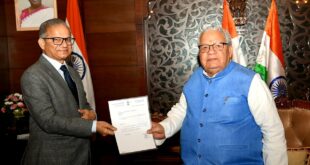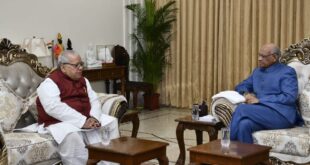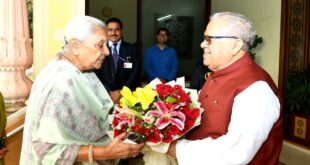The top priority today is to get the economy back on track while ensuring there is no resurgence of the disease.
Global economic prospects have been severely dented by the COVID-19 pandemic. This medical-cum-economic emergency has caused massive dislocations in global production, supply chains, trade and tourism. COVID-19 has impacted economic activity in India directly due to national lockdown and via second-round effects operating through lower global trade and growth.
The government has announced an economic stimulus package worth Rs 1.7 lakh crore, designed to help millions of low-income households bear the lockdown. This package was supplemented by various measures from the RBI, which included reducing the repo rate by 75 basis points, providing a three-month moratorium on payment of instalments of term loans, and deferment of interest on working capital facilities by three months.
The sharp reduction in international crude oil prices could improve India’s terms of trade, but the gains are not expected to offset the drag from the shutdown and loss of external demand. To manage the stress, economic policy has to focus on guaranteeing the functioning of essential sectors, providing enough resources for people hit by the crisis and preventing excessive economic disruption. The Chinese character of the crisis represents both challenge and opportunity. Hence, we need to focus on the following aspects.
In the last three decades, China has become the global factory. The disruption in the supply of finished goods and raw materials has led to an increased awareness of the risks of this concentration. Companies are increasingly exploring the possibilities of diversifying their manufacturing and supply chains to avoid putting all their eggs in the China basket. We should leverage this to our advantage so that China’s loss is India’s gain.
MSMEs form the backbone of the economy. But they are quite vulnerable and have minimal reserves to meet difficulties. The lockdown has left them with unmet expenses, utility bills, rents, salaries. And payments owed to these units are stuck, creating a double squeeze. On April 15, the government announced certain relaxations on the lockdown restrictions. According to an assessment by the Federation of Indian Export Organisations (FIEO), these relaxations will help restart about 80-85 per cent of export-oriented manufacturing units. If these units can operate by early May, it would help them to pay wages for May. Further, restarting labour-intensive industries like food processing and construction in rural areas would generate income for migrant labourers. Allowing transport, warehousing and cold storage would ensure smoother functioning of the supply chain.
Businesses have started facing massive working capital/cash flow issues and these will continue even post the lockdown because of reduced demand. MSME and startups are the worst hit. Though the government has taken steps via SIDBI and other schemes to help MSMEs, we need to do more. The government can also procure from MSMEs and startups, thus helping them sustain. Restoring pre-COVID levels of purchase could take six months or more. Until then, businesses and workers need to brace themselves for drastic cuts in demand, salaries and jobs. But with speedy action, the government could significantly ease the damage.
Another focus area is pharmaceuticals. Despite the country’s strength in the generic drug scene, Indian pharma majors have been importing raw materials from China though some of these are available locally. India could be the largest exporter of medicines. It can also present itself as a credible alternative in the textile and apparel segment. Other promising areas include minerals and metals, homeware, ceramic tiles, engineering goods and furniture.
Further, with businesses transitioning to a digital model, the demand for online tools for communication and collaboration will increase. Online methods of skilling, upskilling and reskilling will grow, leading to a spike in demand for good online education content. Light industries in villages, especially in food processing, will also get a boost. Startups should be encouraged to develop cold-chain logistics with a proper ecosystem.
The top priority today is to get the economy back on track while ensuring there is no resurgence of the disease. The Rajasthan state government should set aside funds to take care of our first responders (across all essential services) and patients. It should provide a universal basic cash payment to every household so that minimal needs can be met even under a lockdown. The government must also ensure the uninterrupted flow of critical supplies and services, and invest in the much-needed health infrastructure.
The government should waive-off utility bills for the urban poor for three months. Similarly, MSMEs should be exempted from electricity duties for three months. Taxes levied by local/state government may also be exempted for three months for specific sectors.
Along with the private sector, the government must create an emergency framework to manufacture low-cost sanitisers and masks, testing kits and protective gear to support healthcare professionals. Additionally, manufacturing low-cost ventilators, digital thermometers and critical vaccines will help mitigate the loss of life.
Organisations should create a COVID-19 response fund through their corporate social responsibility spending. A disaster management framework focused on creating a robust channel to provide information and create awareness is essential. The government should also ensure disaster response training programmes. The Rajasthan state government should also push the National Agriculture Market (eNAM).
Flattening the curve is of utmost importance. India is battling this medical-cum-economic emergency through isolation, social distancing and upscaling diagnostic and testing requirements. But given the magnitude of the crisis, there is a compelling need for coordinated efforts by all stake-holders – central and state governments, doctors, nurses, planners and policy-makers and even those at the helm of affairs at various levels of administration. All of us must play our part in meeting this challenge.
This article first appeared in the print edition dated May 7 under the title “Regroup and reinvent”.
 Kalraj Mishra Kalraj Mishra, Governor Rajasthan
Kalraj Mishra Kalraj Mishra, Governor Rajasthan



